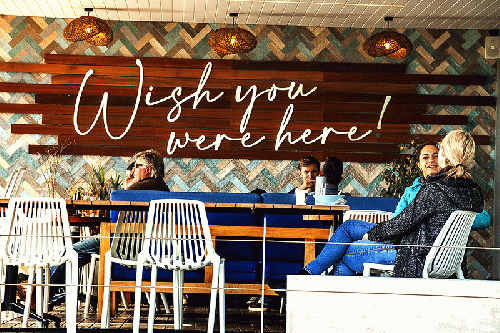/>
In March of 1960, white cops massacred 69 unarmed blacks in Sharpeville, South Africa. In 1961, uMkhonto we Sizwe [Spear of the Nation] was co-founded by Nelson Mandela to fight back against white racist rule. In 1964, Mandela was sentenced to life in prison. In 1976, between 176 and 700 black protesters were killed by white policemen in Soweto. Four thousand were injured.
Teaching in Cape Town after years in the UK and US, J. M. Coetzee published Life and Times of Michael K in 1983. Its epigraph, "War is the father of all and king of all. Some he shows as gods, others as men. Some he makes slaves, and others free."
Although it's a novel about war in South Africa, there wasn't one, then or later, but war was definitely in the air, so Coetzee imagined it in detail. Though Coetzee was wrong in predicting war, his depiction of a society experiencing social breakdown, degradation, paucity and draconian restrictions resonates beyond place and time.
To emphasize Michael K's displacement, Coetzee makes him a harelipped bastard who spent much of his childhood in a group home. Grown, he had no friends, much less women. K scraped by on the lowliest jobs, such as tending to a public bathroom at night, where he's "oppressed by the brilliant neon light that shone off the white tiles and created a space without shadows."
Then K got mugged, "On his way home from work late one Friday he was set upon in a subway by two men who beat him, took his watch, his money and his shoes, and left him lying stunned with a slash across his arm, a dislocated thumb and two broken ribs."
Sounds like Cape Town today, or Philly, Chicago or Memphis, etc., but certainly not Seoul, Tokyo, Singapore, Tirana or even Beirut, with its economic fiasco.
When K admitted his mother to a hospital, we got a better glimpse of a society in crisis, "She had spent five days lying in a corridor among scores of victims of stabbings and beatings and gunshot wounds who kept her awake with their noise, neglected by nurses who had no time to spend cheering up an old woman when there were young men dying spectacular deaths all about."
Released, K's mom returned to her tiny room in affluent Sea Point, where she's a domestic servant. Triggered by a mere traffic accident, an orgy of rioting and looting then broke out:
Parked cars were smashed open and pushed broadside on into the street. Sirens announced the curfew and were ignored. An ambulance that arrived with a motorcycle escort turned about short of the barrier and raced off, chased by a hail of stones. Then from the balcony of a fourth-floor flat a man began to fire revolver shots. Amid screams the crowd dashed for cover, spreading into the beachfront apartment blocks, racing along the corridors, pounding upon doors, breaking windows and lights. The man with the revolver was hauled from his hiding-place, kicked into insensibility, and tossed down to the pavement. Some residents of the flats chose to cower in the dark behind locked doors, others fled into the streets. A woman, trapped at the end of a corridor, had her clothes torn from her body; someone slipped on a fire escape and broke an ankle. Doors were beaten down and flats ransacked. In the flat immediately above Anna K's room, looters tore down curtains, heaped clothing on the floor, broke furniture, and lit a fire, which, though it did not spread, sent out dense clouds of smoke.Nothing like that happened in white South Africa, and Sea Point is still elegant and pristine, with the best Chinese food in Cape Town, mostly to serve its large Jewish population.
Coetzee, though, didn't have to overly strain his imagination, for he lived in the USA from 1965 to 1972, when black riots were common. He saw them on TV, at least. It's a leap, however, to place such a scene in Sea Point. Even today, it's overwhelmingly white.
Perhaps his time in the US also made Coetzee circumspect about race, especially if it suggests any foreboding about blacks, especially black revenge. Although there's a race war here, race is never addressed, and even Michael K's is unclear.
With his mom a domestic servant, it's implied K was most likely not white. Nearly halfway through the novel, he's booked at a police station as "Michael Visagie-CM-40-NFA-Unemployed." Most readers, though, would miss that CM means colored male.
We get another tiny hint when a particularly nasty police captain is described as a "big blond man." Railing against a group of vagrants, he accused them of being criminals, saboteurs, idlers and ingrates who, collectively, were behind South Africa's turmoil, "You've asked for war, you get war!"
The you asking for war, then, were not blacks but, vaguely, society's losers, oppressed or downtrodden. Coetzee is reframing South Africa's racial problem as a Marxist battle between classes.
(Note: You can view every article as one long page if you sign up as an Advocate Member, or higher).






